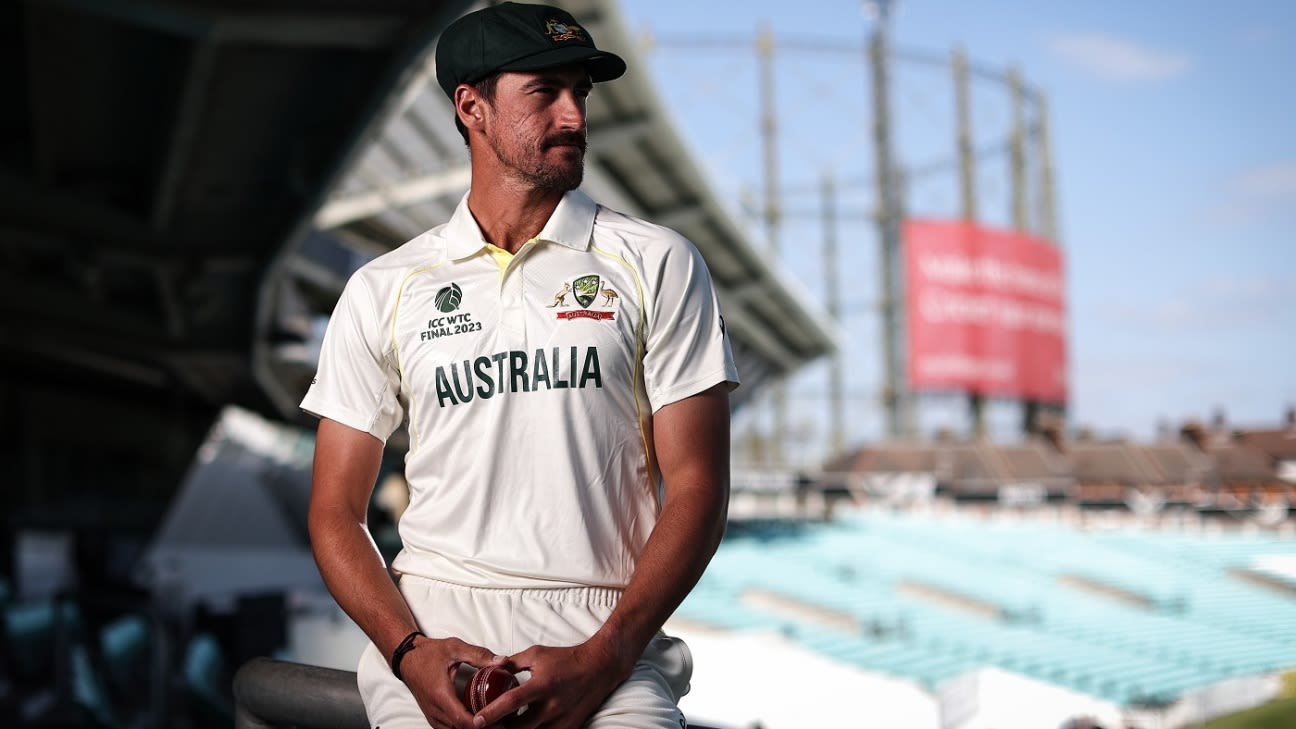
"We'd seen the way they go about it, they are ultra-aggressive," McDonald said. "But I think Scott Boland, that match-up probably surprised us how aggressive they were against Scott. So that's something we can look at and find better ways through."
Boland did dismiss Zak Crawley twice the game and was threatening under gloomy skies on the third evening, but for the first time in his Test career he was largely treated with disdain.
McDonald suggested that with a degree of hindsight about how conditions played out at Edgbaston, where the pitch was largely flat and slow, Starc could have had an impact.
"I think the fact the line and length potentially over left-arm swing, and we didn't feel as though we may have got swinging conditions here," he said. "It's really down to a gut feel at selection, it can be critiqued any way you want.
"We feel as though, looking back on it, potentially Mitch could have played a role, there's no doubt about that. But we felt like when we went into the game with all the information that we had, we made the best decision.
"We took Starcy on that journey, he understands that and he understands the fact there are four more Test matches and he's got a pivotal part to play within that."
One of the knock-on effects of England playing at such a rapid tempo is that the fast bowlers did not clock up massive workloads at Edgbaston. Captain Pat Cummins sent down the most with 32.2 overs and Hazlewood was used for 25 alongside Boland's 26. Allrounder Cameron Green bowled just eight.
McDonald said there was a plan mapped out of which bowlers may suit certain venues but that it could also be adjusted on the fly.
"Our bowlers didn't bowl as many overs as we probably expected in this Test match," he said. "There's a longer turnaround, so you can have a pencil plan but the reality is you see how they pull up, what the conditions are when we get to Lord's, and you make a decision with what's in front of you. The issue is we've got great depth in the fast bowling, and that's one of our great strengths."
On the field, Australia played a largely defensive game during the opening Test, operating with three or four sweepers for large periods and sometimes only a slip and a gully. It was a tactic flagged before the series but came in for scrutiny which would likely have escalated had Cummins and Nathan Lyon not forged their match-winning stand. However, McDonald wasn't going to be drawn into judging one team's approach over another.
"I think it should be more a celebration," he said. "Two styles come together and produce a Test match like that. Certainly no vindication, we'll go about it our way and England will go about it their way and we'll see what happens at the end of the series.
"We're clear from the way that we play. I've suggested over the last 12-18 months it's pretty clear the way that we do go and we feel as though we've got some great strengths around that."
Andrew McGlashan is a deputy editor at ESPNcricinfo















 Phone: (800) 737. 6040
Phone: (800) 737. 6040 Fax: (800) 825 5558
Fax: (800) 825 5558 Website:
Website:  Email:
Email: 






